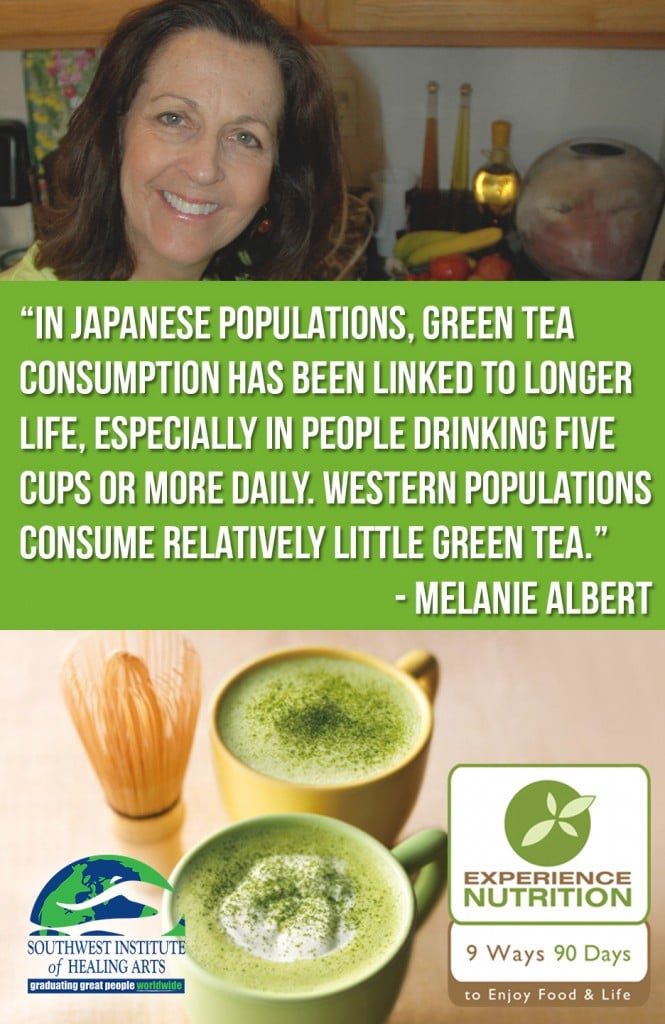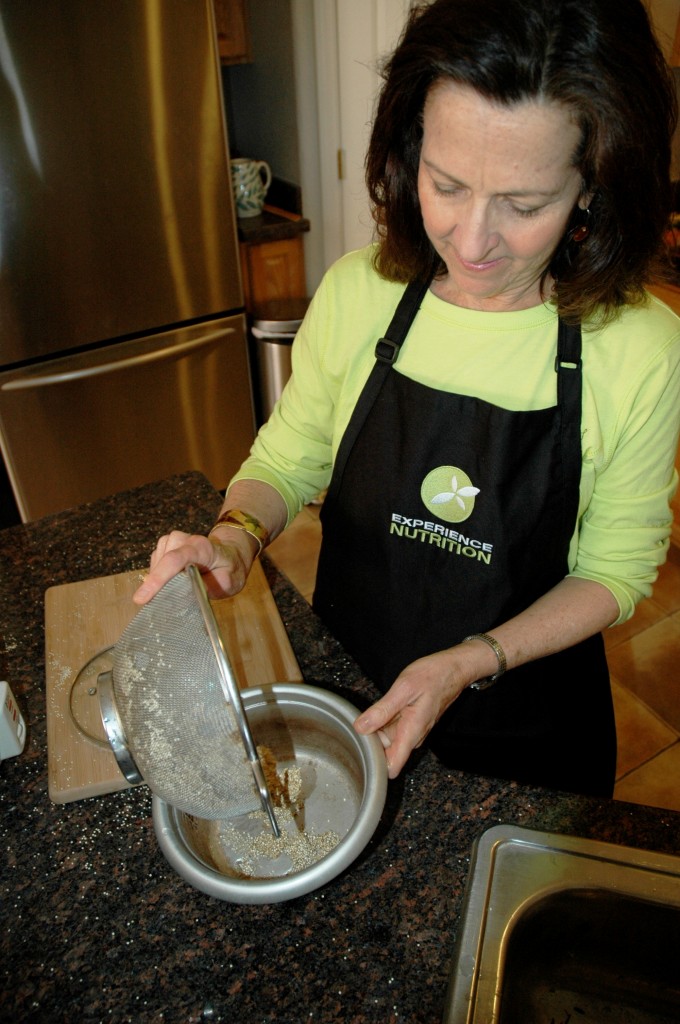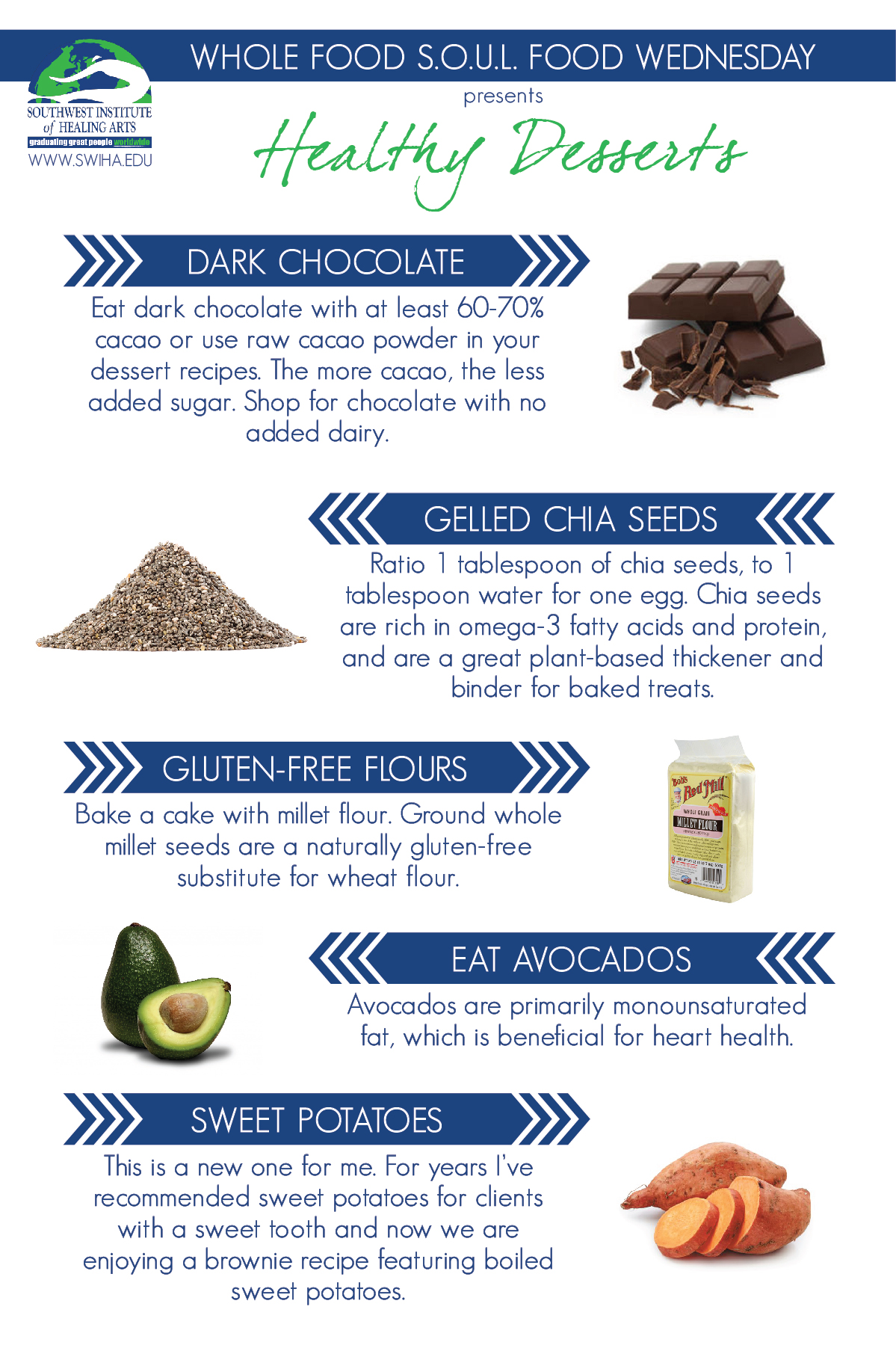By Melanie Albert, Guest Blogger
March is National Nutrition Month, a month dedicated to nutrition and education. National Nutrition Month was created by the Academy of Nutrition and Dietetics, focusing on the importance of making informed food choices and healthy eating habits. So the perfect way to kick off this month is with some fun, healthy snacks!
This is a great time to add three delicious healthy snacks, primarily inspired by a vegan and raw food way of eating, to your life. Have fun this week trying superfoods including raw cocoa and goji berries, and make your own almond butter.
Read More
Topics:
Southwest Institute of Healing Arts,
Melanie Albert,
Whole Foods Wednesday,
Blog,
Holisitc Nutrition,
SWIHA,
Whole Foods,
Healthy Desserts,
Nutrition
Thirty years ago, Melanie Albert stopped eating meat. This wasn’t a decision based on politics or personal beliefs about animals. She simply didn’t like the way her body felt after consuming meat. “My body was feeling full when I ate meat and I felt as though I could not digest it,” Melanie says about her longstanding decision to eliminate meat from her diet. Shortly after eliminating meat, Melanie began to focus on intuitive eating; listening to the cues her body was giving her about food and making decisions about what food to consume.
Little did she know that a few years later, nutrition and intuitive eating would be a daily part of her life and her work. After leaving meat behind, she began to eat organic, “way before it was popular in the media,” she says. Although her decision to go organic baffled some of her friends and family, Melanie enjoyed the results too much to listen to the naysayers. In 1995, Melanie started to educate herself about the true power of nutrition.
It was her mother’s breast cancer diagnosis in 1995 that spurred Melanie to focus her attention on food and nutrition. Her mother was given six months to live by allopathic doctors, so Melanie moved to Florida to care for her.
Read More
Topics:
Southwest Institute of Healing Arts,
Melanie Albert,
Whole Foods Wednesday,
Blog,
Holistic Nutrition,
SWIHA,
Whole Foods,
Nutrition
By Melanie Albert, Guest Blogger
“Eat your vegetables,” is a common phrase that most of us probably heard from our parents growing up. Many people, especially children, believe that vegetables are boring, or that they have no taste. That only “health nuts” eat raw or plain steamed vegetables. This is where “finishing vegetables” comes into Whole Food S.O.U.L. Food cooking techniques. Read on for tips and recipes about how to make veggies fun and delicious for the whole family to enjoy!
Add Culinary Interest to Your Veggies
Finishing steamed vegetables with organic oils, toasted spices, fresh herbs, toasted nuts and seeds, and finishing salts adds delicious taste and culinary interest, with beautiful colors, textures and aromas.
Steam carrots, cauliflower or broccoli in a bamboo steamer and then finish them with different combinations of oils, seeds, salt or spices to create exciting, tasty dishes!
Read More
Topics:
Southwest Institute of Healing Arts,
Melanie Albert,
Whole Foods Wednesday,
Blog,
SWIHA,
Recipe of the Week,
Whole Foods,
Nutrition
By Melanie Albert
Protein, alongwith fats and carbohydrates, is an essential macro nutrient which we must eat everyday with every meal. Protein is a building block of our body and helps to buildthe foundation of our bones, muscles, cartilage, skin and blood.
No Meat for 25 Years
I stopped eating red meat 30 years ago because my body could not digest it. I was a runner and felt like the meat made me sluggish. Then 18 years ago when my Mom was diagnosedwith breast cancer, I learned about antibiotics in poultry and stopped eating chicken and turkey, which I loved at the time.
My family was worried for years that I was not eating enough protein, but while I was studying nutrition, I learned so much about good plant protein, and now I’m honestly not worriedabout eating enough protein. Today, I love educating people about good sources of plant protein, including beans, whole grains and even vegetables.
Read More
Topics:
Southwest Institute of Healing Arts,
Melanie Albert,
Whole Foods Wednesday,
Blog,
SWIHA,
Recipe of the Week,
Whole Foods,
Nutrition
Discovering Green Tea
I began drinking green tea ten years ago when I started working with best-selling author and integrative medicine pioneer, Dr. Andrew Weil, who has been a long-time advocate for drinking green tea. At first, green tea was a little odd to me. I was not accustomed to the green, grassy taste of high quality green tea. Over time, I’ve grown to enjoy drinking it. Now the ritual of preparing and drinking high quality green tea and matcha tea are part of my daily life. I’m sure many of you at the Southwest Institute of Healing Arts (SWIHA) campus see me drinking my matcha tea throughout the day.
Why Green Tea is Good for You
- ECGC, the antioxidant in green tea, is an anti-inflammatory.
- Research has found that green tea benefits heart health, brain health and cancer prevention.
- Full of catechins and polyphenols, which help the brain to relax and stimulates dopamine levels.
- Theanine in green tea helps improve mood and a sense of relaxation.
- Known to increase memory and concentration.
- Has less caffeine than coffee.
- Tastes delicious, so enjoy a few cups every day!
Most Popular Green Teas
Read More
Topics:
Melanie Albert,
Whole Foods Wednesday,
Recipe of the Week,
Whole Foods,
Nutrition
Fats Are Essential
While the media has made us afraid of fats, they are actually required in order for our bodies to function properly. For years during the low fat, no fat craze I thought fats were bad and I stopped eating some of my favorite foods, nuts and olives. Now I’ve learned that fats are good for us and that our bodies require about 30% fats in our diet each and every day, for each and every meal.
Plant based fats like nuts, seeds, avocados and olives are a healthy fat source. Today, we are focusing on cold water fish, which are rich in omega-3 fatty acids.
Read More
Topics:
Melanie Albert,
Whole Foods Wednesday,
Whole Foods,
Nutrition
Like many in my generation, for most of my life I only knew white rice. Although I heard about whole grains I did not incorporate them into my daily eating until I was learning about whole grains about eight years ago. At that time I decided to get tested for food sensitivities and found that I’m sensitive to gluten, the protein in whole grains including wheat, barley and rye. I stopped eating most food with gluten and now find that when I do eat gluten, I almost immediately get hives. Last year, I was also tested for celiac disease, a serious autoimmune condition in which our body does not absorb nutrients. Fortunately, I do not have celiac disease. I’m glad that I’ve had these experiences as I can now share gluten-free eating with my clients and in my writing.
Why We Need Carbs
People are confused about carbs and about whole grains. Many diets are no carb or low carb, but in reality our bodies need about 40-50% carbs every day at every meal. The problem is that people eat low quality carbs, like cookies, cakes, crackers and bread. Other carbohydrate-rich foods, such as whole grains, beans, vegetables are good for us.
Read More
Topics:
Holi,
Melanie Albert,
Whole Foods Wednesday,
Recipe of the Week,
Whole Foods,
Urban Farming,
Nutrition
When we cook and enjoy eating real whole foods we have the opportunity to create a wide variety of tasty, beautiful, colorful, local, in-season dishes.
- Cook with variety. You can cook the same foods different ways – raw, steamed, roasted, blended - and enjoy very different, delicious meals.
- Eat with the Season. When we eat real whole foods, we have the opportunity to eat in tune with what’s in season, and enjoy the food that nature naturally creates for us in the geographic area where we live.
- Eat with Color. By incorporating whole foods into our life, we easily enjoy the infamous "rainbow of fruits & veggies" that we hear about so often, getting a variety of nutrients and phytonutrients (natural plant chemicals).
Read More
Topics:
Melanie Albert,
Whole Foods Wednesday,
Recipe of the Week,
Whole Foods,
Urban Farming,
Nutrition
Eat Local. Shop at a Farmers’ Market. Buy a CSA. Enjoy a Simple Roasted Roots Recipe
In Arizona where the Southwest Institute of Healing Art (SWIHA) campus is located and where I live, many of the local farmers’ markets will be re-opening for the season after our “dry heat, hot summer”. Fortunately, we do have a few farmers whose produce is available during the summer, so I’ve been having fun shopping from a few farmers for our Whole Foods Cooking Classes at SWIHA this summer.
4 Great Reasons to Eat Local
- Locally grown produce is fresher, tastes better and lasts longer.. Most produce in conventional grocer stores is picked well before it's ready to be picked. Some of the methods used to ripen the food in warehouses and in trucks include methane gas. Food that is allowed to ripen on the vine absorbs many of the flavors and nutrients they are intended to. Local produce shortens the path traditionally traveled from farm to table and the result is better tasting more nutrient dense food.
Read More
Topics:
Melanie Albert,
Whole Foods Wednesday,
Blog,
Recipe of the Week,
Whole Foods,
Urban Farming,
Nutrition,
Farmers Market
Plus tasty recipes: Experience Nutrition™ Vegan Chocolate Avocado Pudding & Chocolate Sweet Potato Brownie
What do Sweet Potatoes, Bird Seed, Grass Seed, Dark Chocolate & Avocados have in Common? Healthy Dessert Night at Whole Foods Cooking Class!!!
Within the Whole Foods Cooking Class at the Southwest Institute of Healing Arts we really enjoyed “Healthy Dessert Night” creating delicious whole foods gluten-free and dairy-free desserts with special unique ingredients. The students passionately and creatively cooked desserts including Vegan Chocolate Avocado Pudding, Millet Cake, Chocolate Sweet Potato Brownies, Agar Agar Gelatin, Vegan Chocolate Cream Pie and a Spicy Apple Crisp.
Top 5 Ways to Create Tasty Healthy Desserts with Unique Ingredients
Read More
Topics:
Melanie Albert,
Whole Foods Wednesday,
Blog,
Recipe of the Week,
Whole Foods,
Healthy Desserts,
Urban Farming,
Nutrition











